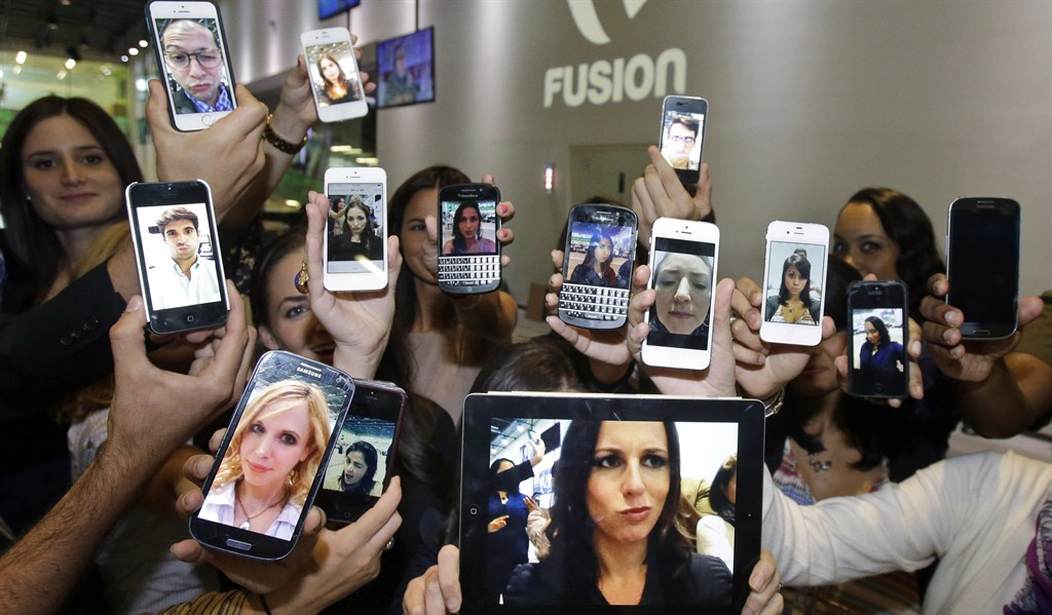No generation stands still for a snapshot. Even when making a selfie, friends, acquaintances and bystanders sneak into the frame, ruining the message that it's "all about me." (You could ask Ellen DeGeneres.)
So it was a big task undertaken when the Pew Research Center set out to capture the "Millennials in Adulthood," to distill the essence of a generation now between the ages of 18 and 33.
"Generations, like people, have personalities," the researchers say, and this cohort, starting in its late teens pressing into adulthood, "have begun to forge theirs: confident, self-expressive, liberal, upbeat and open to change." Of course, as soon as the words capture the imagination, contradictions and paradoxes emerge. As they forge into adulthood, the millennials are passing milestones later than any other generation before them, measured by work, marriage and children.
Whatever they're doing, you can bet they're recording it.
Confidence and self-expression depend on technology: what you blog, tweet, post and send. Since the millennials are "digital natives," the first generation to get laptops as toddler toys, it shouldn't surprise anyone that 81 percent of them are on Facebook, claiming an average of 250 "friends," and more than half have posted a selfie on a social-media site. But it may surprise us that 9 in 10 millennials are critical of too much self-expression and exposure online. They worry that a friend or relative will show and tell something embarrassing about them. Virtual narcissism is a double-edged reflection.
Recommended
Generational surveys of the young produce snapshots that freeze a moment in the fluid passage of life, but they're only the beginning of the family album, and it will take a series of albums over the years to accurately capture them.
If you start with the grandparents of millennials, unfairly labeled "the silent generation," born between 1928 to 1945, you're likely to see smiling family groups where a father is the breadwinner, the mother is a stay-at-home mom, and the children are neatly dressed, the wholesome unit much maligned today.
Few want to go back to that stereotype, but we couldn't if we wanted to. Attitudes and the economy have changed, but there are a lot of unhappy people today who miss some of the things in those family photographs.
The nuclear family had its problems and limitations, but the new college graduate didn't expect to boomerang home to a bedroom with a fading poster of Marilyn Monroe on the wall. Nor would Lena Dunham, the protagonist of HBO's "Girls," showing off too much of her chubby nude body, have been the sitcom icon of the educated female of that silent generation.
You'll find no twerkers in this survey and few women who "lean in." Women in this cohort have more education than men, and both men and women have fewer job opportunities than their parents or grandparents did.
One in eight of the older millennials are now living at home, largely because of harder times. What's touching is that a majority says they're willing to return the favor, showing a sense of responsibility and generosity toward an aging parent who may want to come live with them.
Statistical surveys don't reach personal stories, and there's certainly a disconnect between the millennial optimism and their current reality. They usually want to marry and have children, and rank such aspirations far above achievement in a career.
Nevertheless, they aren't marrying or working up to those expectations. Only 26 percent have tied the knot. That's considerably lower than 36 percent of the Gen Xers, 48 percent of baby boomers and 65 percent of the silent generation at their age. Almost half of the millennial women have children out of wedlock. There's less stigma, but there's also less child support.
They want an active big government, and think health insurance is the government's responsibility. Like nearly everyone else, they don't much like Obamacare. It's precisely this group President Obama tried to reach this week when he stooped to plug government health care on Zach Galifianakis' online cult comedy show.
The millennials are on track to become the most educated (or most "schooled") generation in American history, but what they'll do with that education is not clear. Of the three generations living before them, they're the only group that takes no pride in the "work ethic."
They don't dress for success, 4 in 10 have tattoos (usually more than one) and they pierce their skin in places beyond their earlobes. They'll have to change the dress code if they're lucky enough to find a job in an office. A majority says the older generations are superior to them in both moral values and work discipline. The millennials still have a lot to prove when they grow up.

























Join the conversation as a VIP Member